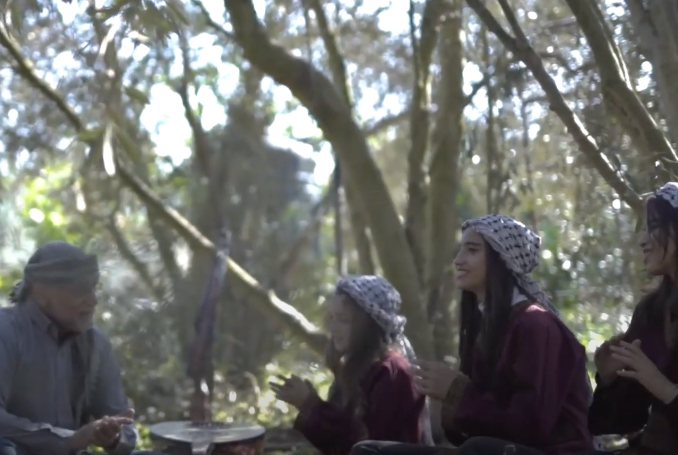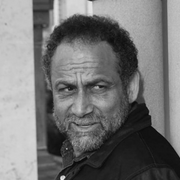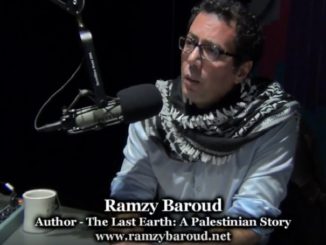
By Haidar Eid 
Culture, art and music contribute directly to shaping the individual and collective consciousness. Songs are an organizing tool in the arduous work of overthrowing occupation, settler colonialism and apartheid. They are pa4t and parcel of the collective memory of the people of Palestine. It is hoped that the Mariyamiya songs, which is part of a project aiming at collecting folkloric songs from various parts of Palestine, will document Palestinian desire to be free from the ravages of occupation, apartheid and settler-colonialism.
Israel has been waging war on Palestinian history and culture. Being a settler colony with a hegemonic exclusionary ideology embedded in Zionism, it claims to have a “civilizing mission” based on the myth that Palestine was a “land without a people”. Hence the claim that there is no such thing as Palestinian culture.
“There was no such thing as Palestinians,” said Israeli Prime Minister Golda Meir in 1969. In Sum, Apartheid Israel, like any other colonial power, fears most the survival of the heritage, civilization, art, culture, history, memories, and the national culture of the people they occupy/colonize, as the late Frantz Fanon would argue. In Fact, Art in Gaza is itself under a horrific, medieval siege, a siege that is the literal antithesis of freedom. And by singing, getting our voices heard, we are, in fact, using music as a tool of resistance.
The denial of the very existence of the Palestinian people explains apartheid Israel’s constant attempts at erasing any sign of Palestinian culture being unequivocal evidence of the rootedness of the people. More than 600 villages and towns were ethnically cleansed and destroyed by Zionist militias during the Nakba, and horrific massacres were committed in order to physically erase Palestine off the map and from human consciousness altogether.
One of those destroyed villages is Zarnouqa, in the district of Ramle, where my clan comes from. Zarnouqa was one of the 531 Palestinian villages ethnically cleansed by Zionist gangs before 1948. Almost all Zarnouqis moved to the Gaza Strip holding their keys waiting for the implementation of UN resolution 194 which grants them their right of return.
Like people from all other depopulated areas in Palestine, Zarnouqis managed to keep their stories of pre-48 Palestine alive. These were stories of love, death, marriage, chivalry, courtship, harvest, bravery, and resistance. Those stories, represented in cultural practices, are what have kept Palestine alive from generation to generation. Weddings have become cultural sites of resistance and survival. And no matter whether the old die, still the young have proven that they will not forget. Not a single Palestinian wedding ceremony does not play those songs that relate current resistance to old rituals.
This work of art is a combination of four songs and Dabka which are found in almost every wedding in the refugee camps where the descendants of refugees from the hundreds of Ramle villages live. One of those villages is Zarnouqa, but the songs are very well known all over Palestine – from Ras Naqura in the north to Rafah in the South, and every area gives them a local flavor. The choice of the title is due to the fact that the Mariyamiyya plant (sage) has become an essential symbol of Palestine, being used to give a nice flavor to tea and also used as an herbal medication for stomach ache and cold diseases, taking its name from the biblical name Mariyam (Mary, the mother of Jesus).
Like the rest of the Palestinian artists, and South African artists before us, we are pitting the power of culture against the culture of power, as Edward Said would have put it.
Ideally speaking, we hope that this will be a fresh examination of the ravages of the Zionist occupation of Palestine and the genocidal blockade of Gaza, as well as a reflection of the range of human emotions under these circumstances, from fierce resistance and commitment to freedom to love and romance.
We dedicate these songs to Karim Younis, the longest-held political prisoner and who was released two days ago after spending 40 years in Israeli prisons!
(Special thanks to the Palestine Solidarity Alliance of South Africa, SA BDS Coalition and Pan-African Palestine Solidarity Network for their support)

– Haidar Eid is an Associate Professor in the Department of English Literature at the Al-Aqsa University, in the Gaza Strip. He is a research associate at the Center for Asian Studies in Africa at the University of Pretoria. He contributed this article to The Palestine Chronicle.







